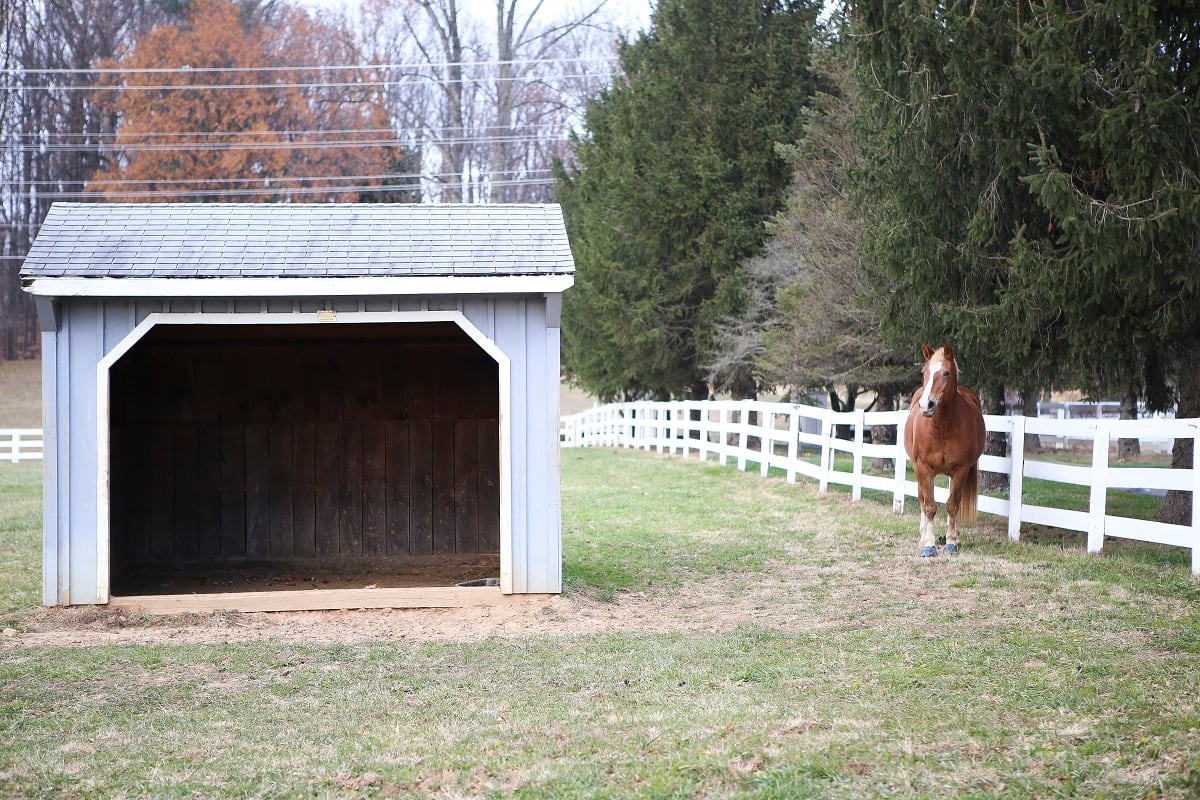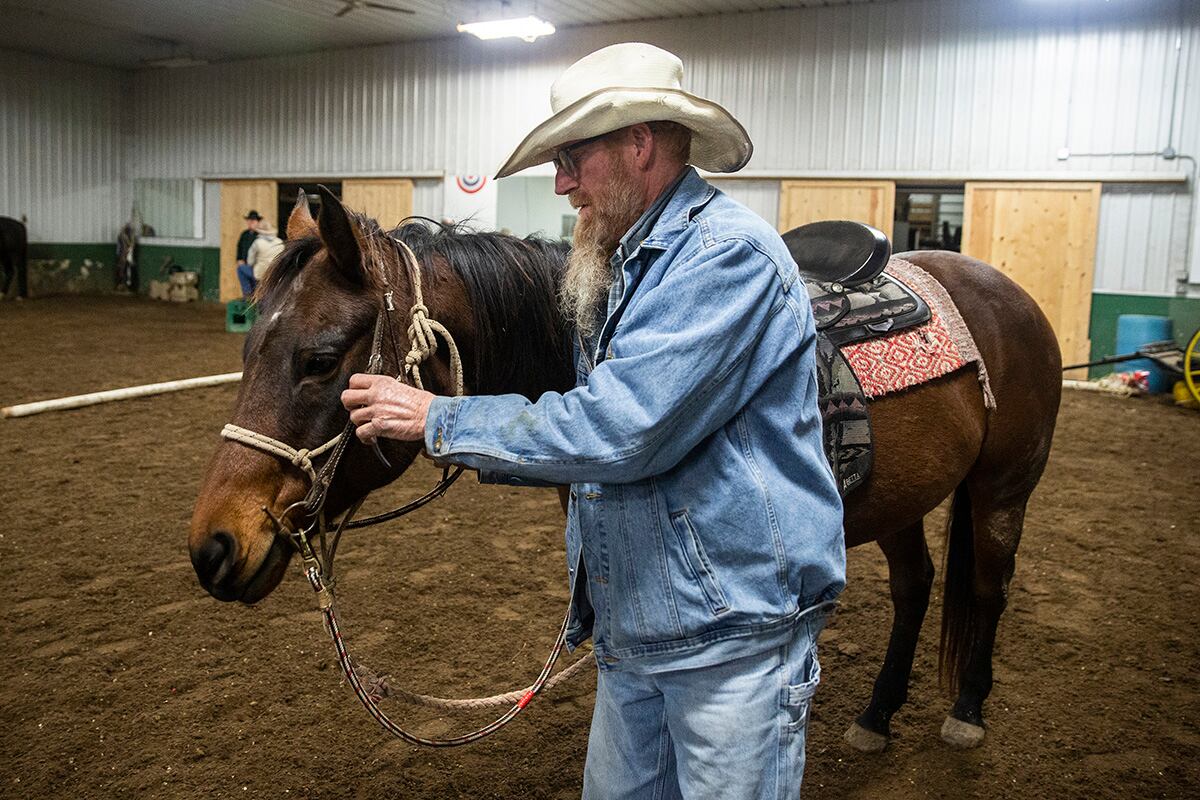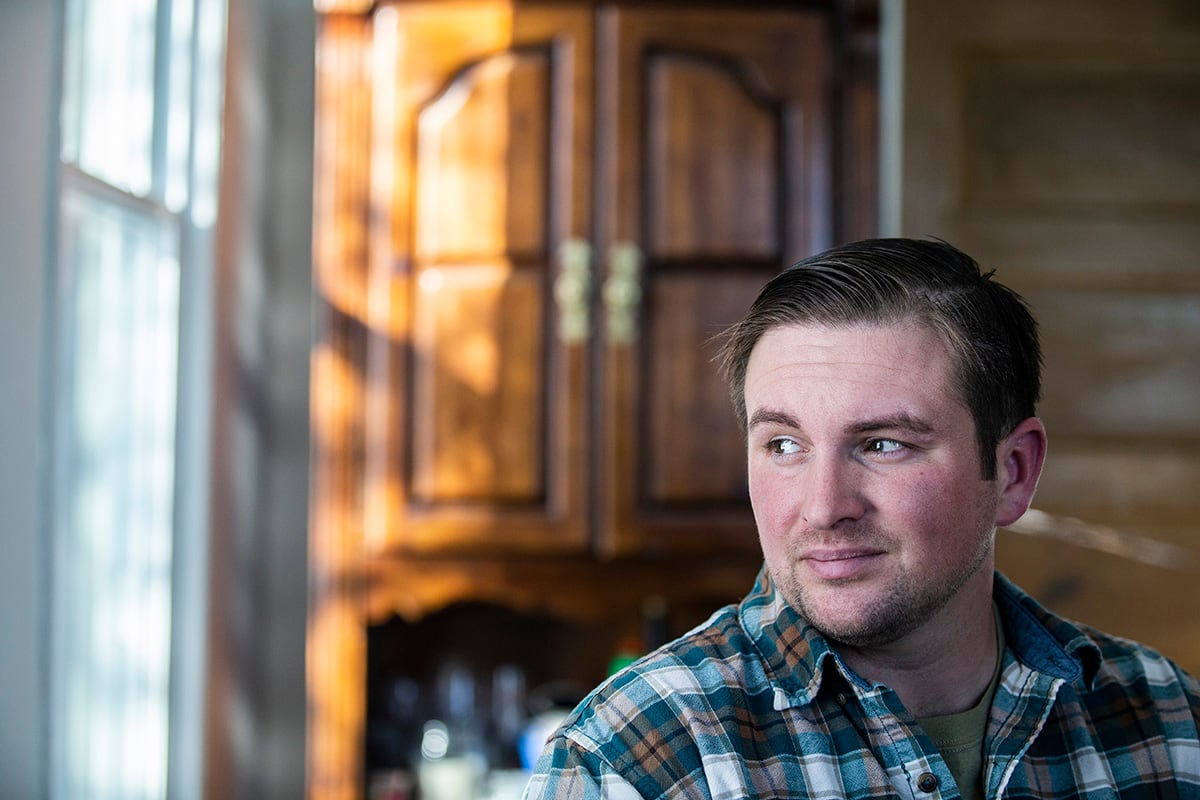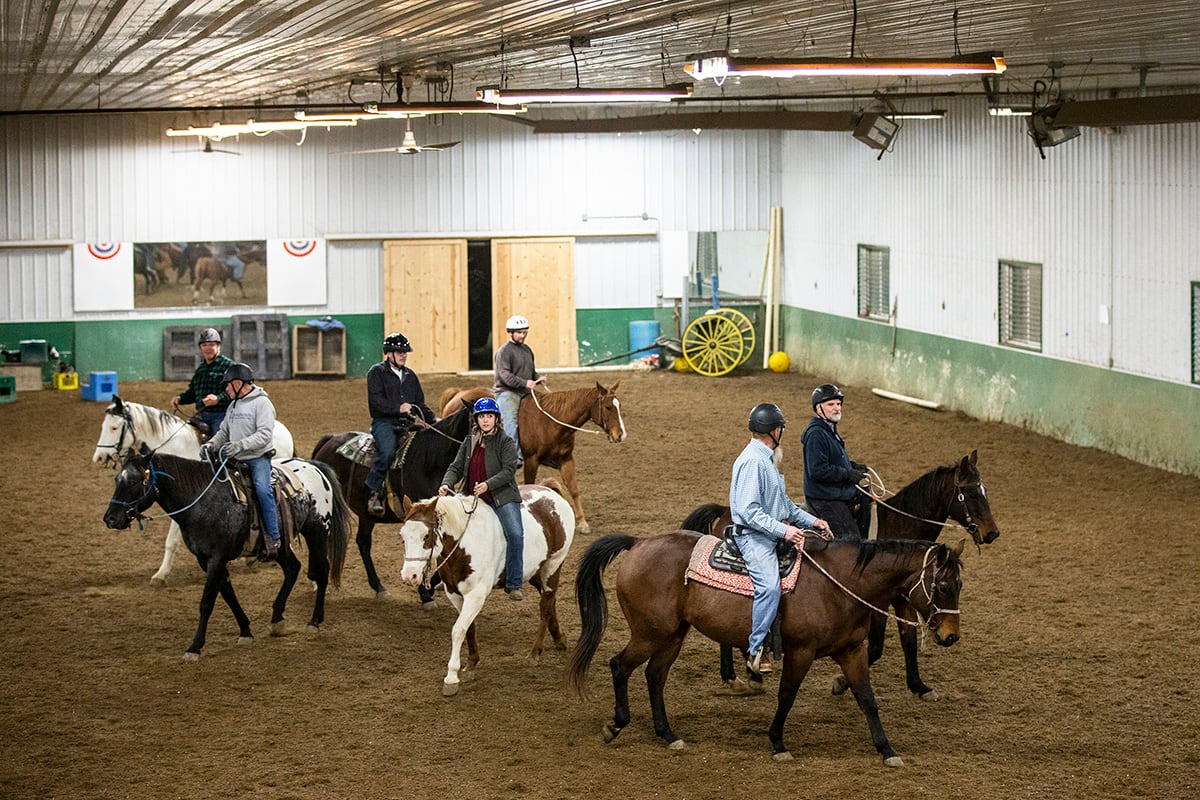ST. CHARLES, Iowa — Cody Miller often forgot to breathe. A hundred firefights in Afghanistan will do that.
You hold your breath a lot, his wife said.
Miller, 33, got on a horse bareback a year ago. Nothing to keep him on.
He held his breath. The horse lowered his head, and Miller could feel its breathing and heartbeat quicken.
He didn't harass the horse with lingering battlefield anger. The veteran from Murray in southern Iowa took a deep breath and felt a calmness surface.
“His head came up, and I felt that horse’s heartbeat slow,” he told the Des Moines Register. “I was there, connected to that horse.”
RELATED

Miller and three other military veterans mount horses in an indoor horse arena at Wildwood Hills Ranch of Iowa near St. Charles, under the direction of Lynn Winkelmann.
Winkelmann is all hat and all cowboy. He is 70, and has a chiseled, sun-dried face and a chipped-tooth grin.
"Sergeant, what are you gonna do about that horse?" he called out to one of the men whose horse veered out of formation.
This isn't the military, so no force or punishment will make it happen. It's more about working with the animal. It's trust and, well, feelings.
The vets come here for equine assisted therapy, though they don’t often use those fancy words to describe it. Mental health experts will say it builds social and communication skills and reduces anger and aggression.
There is no ruminating or fuming on top of a horse. The horse will feel it and react.
There is just this moment. No words.
"Horse's breath smells like baby breath," said Hippie, a former Marine helicopter crew chief in the late 1970s whose nickname came from his mom, who said his adolescent long hair made him look like one.
Like the others, Carroll "Hippie" Waser had some issues. Before he came here he asked God to take his life.
"I felt myself going in the wrong direction, heading in the direction of alcohol. I feel this keeps me from it," he said. "Horses don't judge.
"This is Danny," he said, rubbing the horse's neck. "Nothing fancy. Neither one of us are."

The veterans say these old horses, picked by Winkelmann because they also suffer from past traumas, have saved them.
"My opinion? Horses are the greatest gift God gave us," Winkelmann said.
"They are prey animals and we are predators. They should have nothing to do with us. Yet they let us on their backs. No way they should do that."
Miller joined the Army in 2006 and was never coming back to the family farm near Thayer. A war was on, he wanted to help with it, but he also wanted to escape.
Three years later he's in Kherwar, Afghanistan, working in intelligence and "in 100 firefights in a year," he said. He'd already had a close buddy die and then a fellow intelligence officer took enemy fire to the head and somehow survived, only to have little left but being able to write "beer" on a notepad.
That hit him hard. Any minute, that could happen to you.
He was left off a mission by chance and the truck blew up, killing the men he had vowed to die for, if it came to it. "Survivor's guilt," he said.
"I came back different from what I saw there," he said. "I was angry and didn't know it. I just knew I wanted to change."

But what he found upon his return was a stifling loneliness and quiet, interrupted by intense moments of fear. One time an unexpected noise led him to tackle his brother.
He had post-traumatic stress syndrome, and some relatives asked him when he would get over it.
By 2014, he was divorced, unable to find any job in the quiet of rural Iowa but those for "10 bucks an hour staring at a wall."
"Why wasn't it getting better? I probably wasn't going to commit suicide, but I had thoughts. What's the point?" Miller said.
He began to drink heavily. He blacked out and thought he was going to die.
But one day he saw a brochure for Wildwood Hills Ranch while at the VA, where he finally sought treatment, and recalled a moment in the Army when he felt peace. He was in counter-espionage training in Arizona, when he found a ranch to do some part-time work and get out to the country.
They jumped on horses and rode.
"We were not looking for anything. Just peace," he said.
But the horse sensed a lingering tension and veered to the nearest tree to knock Miller off on a branch. Miller's reaction was to struggle, put all his stress and anxiety into action.
"But the horse just wanted to find a spot of peace," he said. "Humans tend to go through mental hoops."
He worked and worked the horse, who circled, until Miller found his own calm.
"I found it, giving that horse peace," he said.

Researchers are focusing on the mental benefits of equine assisted therapy here. Livingston is gauging improvements among Wildwood participants and the data are analyzed by researchers at Drake University.
Bob Stensrud, a Drake professor of counselor education, said talk therapy is difficult for many who face significant trauma. The non-verbal empathy that comes from a horse has shown to raise the veteran's "mindfulness scores."
Miller is getting better. He got remarried in October. He's studying to be a diesel mechanic while farming 120 acres. He bought his own white horse two years ago, one he named Moon.
"They are like people. You always remember how they make you feel. This horse lets you know," he said.
The horses have taught him "to live from the inside out," exactly the opposite of reacting on a battlefield.
"You can't control that outside; you can control you," he said. "When you do that, you can handle the outside influences.
“Get on a horse and all the stresses go away, and you just enjoy the horse. No matter what horse I ride, I want to give them peace. It’s only fair. That’s what they gave me. Peace.”




